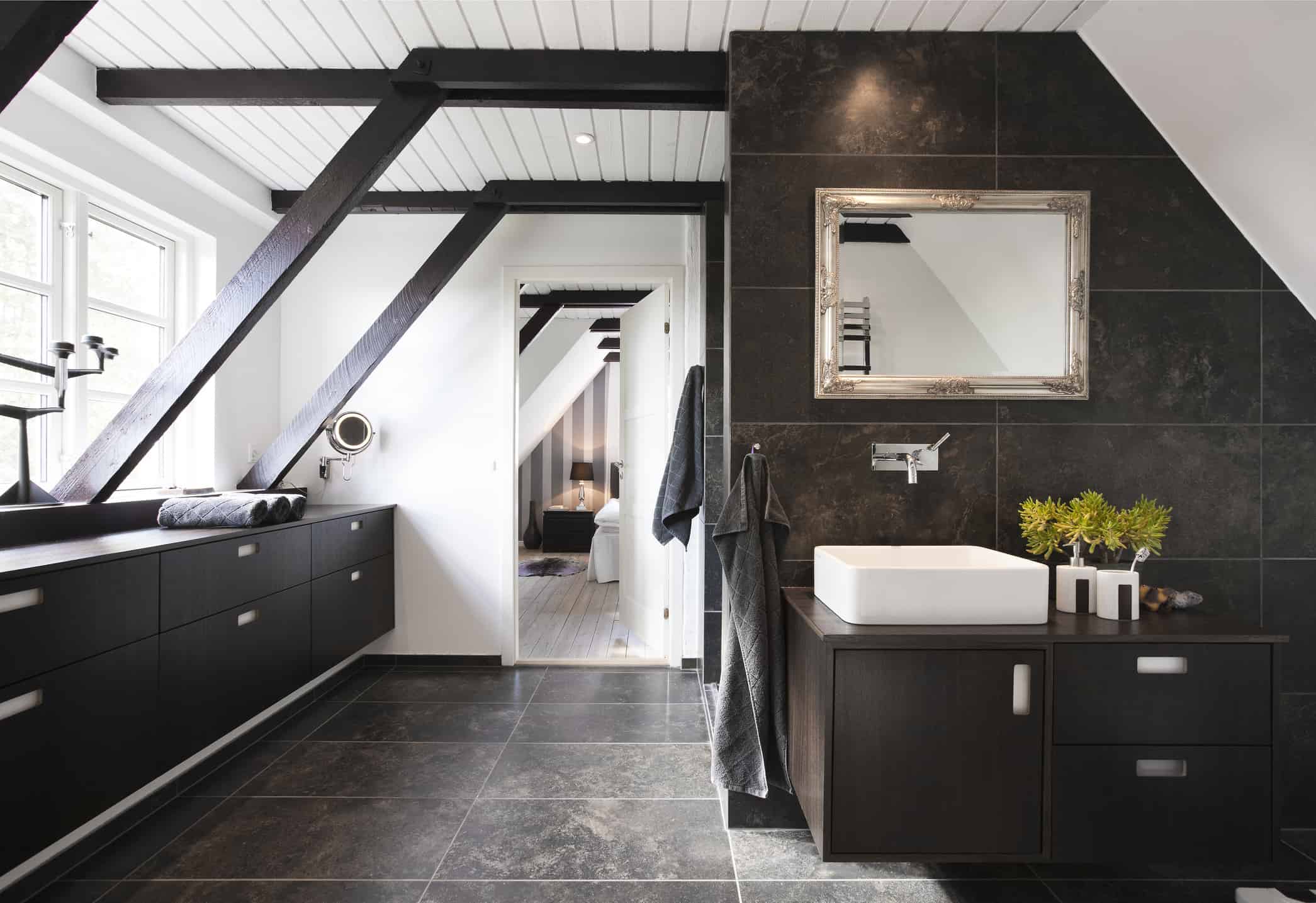With so many options, trying to decide on what type of tile to use in your home can be difficult. But if you are indeed interested in renovating with tile, porcelain tile is definitely worth considering. Able to endure heavy foot traffic in both residential and commercial locations, all while keeping their appearance, they are regarded as an ideal choice for flooring applications. This article will explore some reasons why porcelain tiles are a smart flooring choice.
What is Porcelain Tile?
Before getting into its benefits, let’s take a look at exactly how porcelain tiles are made. It’s a process that has been developed over the course of nearly 1,000 years. Porcelain tile is made from clay, and other natural materials blended together and fired in a furnace. It’s fired at higher temperatures than standard ceramic tile flooring is.
Porcelain tiles are known for being highly uniform in construction and non-porous. This makes them better for spaces with fluctuating temperatures and a more reliable option for radiant heating solutions. Generally, porcelain tile comes in the same thicknesses as ceramic tile, but it’s heavier overall. It’s also offered in more shapes and styles than ceramic tile is, which is why some people often opt for porcelain.
What Makes a Good Porcelain Tile?
The PEI rating scale categorizes porcelain tile in five different grades. Rather than assessing the quality of the tile, the rating scale simply categorizes the tile by recommended use. It’s important to be aware of the grade of the tile as it’ll help you determine where you can install it and the best uses for it. Here’s a breakdown of the grades:
- Grade 1: Grade 1 tiles should only be used on walls since they’re the least durable type of porcelain tile. They’re top choices for bathroom walls and kitchen backsplashes.
- Grade 2: Grade 2 tiles can be installed as a flooring option in low-traffic areas like the bedroom.
- Grade 3: Grade 3 tiles can withstand moderate foot traffic – they’re ideal for residential kitchens, hallways, and family rooms.
- Grade 4: Grade 4 tiles are made for heavy traffic and can be seen in offices, stores, or restaurants. They’re ideal for many commercial installations.
- Grade 5: Grade 5 tiles are the strongest and can withstand heavy foot traffic and wear and tear. They’re typically seen in hospitals, schools, and grocery stores.
Supreme Durability & Ease
So, what are the advantages of porcelain tiles? One of the top important benefits is its durability. It can withstand high traffic areas, as well as those areas in your home that might be exposed to wear and tear. Since porcelain tile floors are denser, they are also very resistant to moisture. Due to its supreme durability, porcelain tile costs less to you in the long run. You won’t have to replace them as often as you would with less durable tiles that are initially cheaper.
Porcelain tile floors are also simple to clean – water wipes right off them without causing any real damage. That’s why they are so commonly used in bathrooms, entryways, and mudrooms where moisture is common. Keep your floors in great shape by sweeping, vacuuming, or mopping regularly.
High-Quality Meets High-Fashion
Aside from being durable, these tiles offer an elegant aesthetic to your home. It’s not difficult to find a tile to complement the furniture and decor of your living room or kitchen. With options in many colours and styles, you’ll be sure to find a porcelain tile that perfectly matches your decor choices.
Beauty & Brawn
Clearly, porcelain tiles make for an excellent flooring choice for many different rooms in your home. Not only do porcelain tiles look great, but they can stand up to moisture and heavy foot traffic for years.
Be sure to explore our extensive collection of porcelain tiles to get your renovations started.

